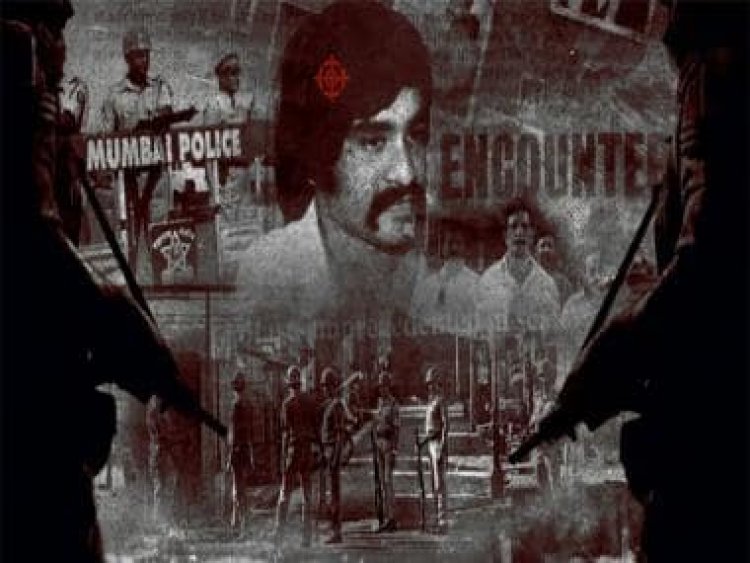Mumbai Mafia Police vs The Underworld review: Familiar tale successfully finds a new lens
Mumbai Mafia Police vs The Underworld review: Familiar tale successfully finds a new lens

In a scene from Netflix’s Mumbai Mafia: Police vs The Underworld, former encounter cop Ravindra Angre tells the interviewer “Bura darpok admi ko lagta hai. Mujhe gussa ataa hai”. Tangre, now in his sixties, can still hold a gaze with eyes that whisper both suspicion and resentment. It’s what makes sensational viewing of material that most people are, at least in the broad strokes, familiar with. This hour-and-a-half long Netflix documentary is a rehearsed spirit, packaged rather interestingly in a brand new bottle. It’s key strengths, quite incredibly, doesn’t lie in getting a voice from the other side – though there is some of that too. But instead it grows on you as a narrative about a bunch of seemingly good guys, who lived long and carelessly enough to become the bad guys.
Mumbai Mafia narrates the story of Dawood Ibrahim’s rise, his baffling orchestration of an unlikely crime syndicate and the Mumbai Police’s reactive strategy against it. The narrative, the structuring is fairly simple, and though Ibrahim’s earlier days are omitted, it’s clear the focus, this time around is on a different aspect of the story that stretches roughly three decades. The late A.A. Khan, founder of the ATS (Anti-Terror Squad), speaks his mind.Ibrahim’s rise, the formation of encounter teams under Khan, the Mumbai riots followed by throwing of the kitchen sink so to speakat organised crime, are all part of a story we have seen, read or consumed in some form as part of our staple diets. The Mumbai Gangster-Police saga is a genre that continues to give and inspire imitations still.
This documentary, however, chooses to focus on the cops as possibly the source of as much evil as the gangsters they were created to nab. Pradeep Sharma hasn’t exactly been a reclusive figure, but here he partly opens up about his life in both hunting and possibly also committing crime. There is a moment – blink and you might miss it – where Sharma tenderly attends to his pet dog. It’s one of those rare forays into his personal life that humanises an exterior so tough, it chilling to even have to interrogate its fragility. The nonchalance with which Sharma and co count their ‘kills’ is never sensationalised, to great effect. Men, living and breathing, cowardly or guilty, are evidently mere numbers to them.
There is obviously a debate here, and though the documentary briefly touches upon it, no time is wasted ruminating on the nature of such brutal, frenetic, form of capital punishment. Was there ever another way against Ibrahim and the Mumbai Mafia? Hindsight possibly tells us there was, but to these officers under the cosh, under the belated lens of morality, there never was. “Who koi sant mahatma thori naa they,” Sharma reasons, without a smidgen of reluctance. There is also, thrown into a hefty mix of men who pulled the trigger and people who witnessed the wars, the unwieldy sight of Shyam Kishore, a former D-company member who speaks chaste English, and articulates far better than the men supposedly on the side of the law. Impressions are never definitive, but here, there is little telling the criminal from the others.
Mumbai Mafia’s strength is obviously its intimate access to Tangre, Sharma and Khan. These men fronted the takedown of a burgeoning empire that rocked the country, let alone the financial capital. Both Tangre and Sharma speak dispassionately, as if hardened to resemble metallic droids that have gathered rust as a form of safety mechanism. Even decades later, they continue to believe they have done the right thing. And you can understand that without such unhesitating faith in the idea of something, it might have been impossible to pull the trigger at just about anyone. It’s the one question, that the documentary asks but can’t bring its voices to answer – the uncanny ease with men commit murder.
The Mumbai Mafia has been fetishized to the point that imitations now resemble starry heroism. So much has been lost through this romancing of criminal life, you could argue, Mumbai Mafia fills a gap where none, at least technically, seems to exist. Gangsters, impersonators, imitators and iconic characters, power our imagination with eerie regularity in a world that feeds on depravity. It only makes sense then that Mumbai Mafia wishes to instead, analyse and dissect the men who were charged with establishing the law, but ended up exploiting it – some would argue, to worse extents. The hour-and-a-half documentary feels a little rushed at times because it has far too many milestones and characters to hit, but it does an excellent job of subtly shifting focus to an aspect of this long-running epic that most people find too inconvenient to remember, or better still, debate.
Manik Sharma writes on art and culture, cinema, books, and everything in between.
Read all the Latest News, Trending News, Cricket News, Bollywood News, India News and Entertainment News here. Follow us on Facebook, Twitter and Instagram.
What's Your Reaction?



























































